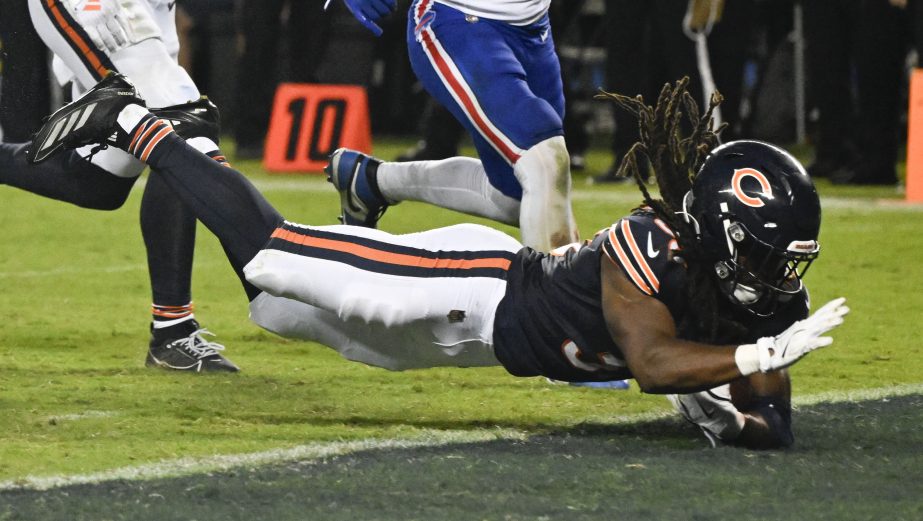Kalshi has argued that Nevada’s effort to require discovery in the two parties’ lawsuit is a distraction, and that the state is asking it to produce documents and information that is “utterly irrelevant” to the question at the heart of the case.
The court case — like others in progress around the country — could determine whether or not the Commodity Exchange Act (CEA) supersedes state law, and if Kalshi can continue to operate in Nevada. Kalshi has been disrupting the legal sports betting space since it won the right to offer election betting last November. Since then, it has offered a form of sports betting in every U.S. jurisdiction, whether or not sports betting is legal. Conceptually, Kalshi says it is not beholden to state law because it is federally regulated.
The company continued to shake up the industry today, when it became public that Kalshi self certified to offer some NFL proposition bets, over/under bets, and point-spread bets. Kalshi is regulated by the Commodity Futures Trading Commission (CFTC).
Following Nevada’s argument that discovery is necessary in the case – and its request for documents and information about Kalshi’s business – Kalshi submitted a response to the U.S. District Court for the District of Nevada late Friday evening, arguing that discovery was not needed for the court to make a decision.
7da71d66-8d32-4b42-885c-53b4f25c1692Kalshi reiterated its argument that – as the court case was primarily about a “purely legal question” over when federal law supersedes state law – new evidence would not make a difference. It said that the only facts that matter are whether event contracts are traded on a Designated Contract Market (DCM) registered with the Commodity Futures Trading Commission (CFTC), which is “indisputable.”
It argues that the documents and information that Nevada has requested are an attempt to muddy the waters.
“The oppositions filed by Defendants labor to create the impression that much more is at issue,” Kalshi said. “They claim to need discovery into such matters as the ‘nature’ of the event contracts; the financial and economic consequences associated with them; Kalshi’s self-certifications pursuant to the CEA; the potential costs of implementing ‘geofencing’; Kalshi’s marketing and consumer protection efforts; Kalshi’s communications with the CFTC; the manner in which federal law and Nevada law conflict; and so on.
“Not only are these issues utterly irrelevant to the dispositive factual question whether Kalshi’s contracts trade on a CFTC-designated exchange, but they also belie Defendants’ assertion that the discovery they seek is narrow. That assertion cannot be taken seriously now that Defendants have made clear that they want to pry into virtually every aspect of Kalshi’s business.”
Kalshi-CFTC communications requested
It argued that Nevada’s request to see Kalshi’s communications with the CFTC was a “thinly veiled effort to challenge the sufficiency of the CFTC’s regulation of Kalshi,” and meant to imply that the prediction market was exercising “political influence” over its regulator.
This, Kalshi said, was not relevant to the question of whether – as Kalshi argues — only the CFTC can shut down event contracts.
“If Nevada has an issue with the CFTC’s regulatory process, it should take it up with the agency or its overseers in Congress,” Kalshi said.
‘Irreparable harm’
In the brief, Nevada also questioned whether participating in discovery could really cause “irreparable harm” to the business, given its recent fundraise at a $2 billion valuation. However, Kalshi said that its valuation did not matter.
“Ignoring the fact that any discovery would be a form of harm to Kalshi, State Defendants then point to Kalshi’s implied enterprise value to suggest Kalshi can absorb the cost of the discovery they seek,” Kalshi said.
“Even putting aside that the implied value of a young, fast-growing company is in no way a measure of its available funds, the fact remains that State Defendants—regulators which lack jurisdiction over swaps traded or executed on Kalshi—are seeking to use a dispute over a purely legal question to probe Kalshi’s files and demand answers to interrogatories they could not otherwise pose.
“Allowing any discovery in these circumstances represents irreparable harm — a document cannot be unproduced, and an interrogatory cannot be unresponded to — and the harm is only heightened by the breadth of the State Defendants’ requests, which are in no way tailored to the legal issue before the Court, and instead target nearly every aspect of Kalshi’s business.”
Kalshi also argued that certain information requested is already public. For example, Nevada asked for a list of all Kalshi contracts available within the state, which can be obtained from the Kalshi website.
Kalshi won a preliminary injunction in its lawsuit against the state of Nevada in April, meaning that it can continue to operate. It won a similar injunction in a lawsuit against the state of New Jersey, but failed to receive one in a case against Maryland.
All three cases concern the legality of Kalshi’s sports event contracts, and whether they can be shut down due to state gambling laws. The New Jersey and Maryland cases have advanced to the Third and Fourth Circuit appeals courts, respectively.





